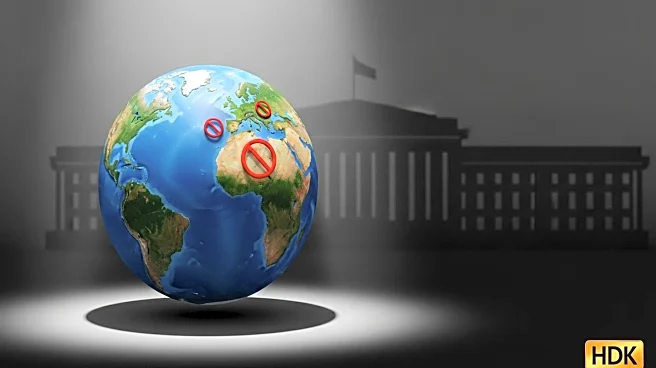What is the story about?
What's Happening?
The Trump administration has denied visas for Palestinian leader Mahmoud Abbas and his delegation to attend a high-level UN meeting. This action is part of a broader consideration to impose visa restrictions on several other delegations, potentially limiting their ability to travel outside New York City during the United Nations General Assembly (UNGA). The move reflects ongoing tensions and diplomatic strategies employed by the U.S. in international relations.
Why It's Important?
The potential visa restrictions could have significant diplomatic repercussions, affecting U.S. relations with countries whose delegations might be restricted. Such actions may influence international perceptions of U.S. foreign policy, particularly regarding its stance on Middle Eastern issues. The decision could impact diplomatic negotiations and discussions at the UNGA, altering the dynamics of international cooperation and dialogue.
What's Next?
If the U.S. proceeds with these visa restrictions, affected countries may respond with diplomatic protests or reciprocal measures. The situation could lead to heightened tensions at the UNGA, affecting the ability of delegations to participate fully in discussions. The U.S. may face pressure from international bodies and allies to reconsider its approach, potentially leading to diplomatic negotiations to resolve the issue.
Beyond the Headlines
The visa restrictions underscore the complex interplay between domestic policies and international diplomacy. They highlight the challenges of balancing national security concerns with diplomatic engagement. This development may prompt broader discussions about the role of visa policies in international relations and their impact on global diplomatic efforts.

















